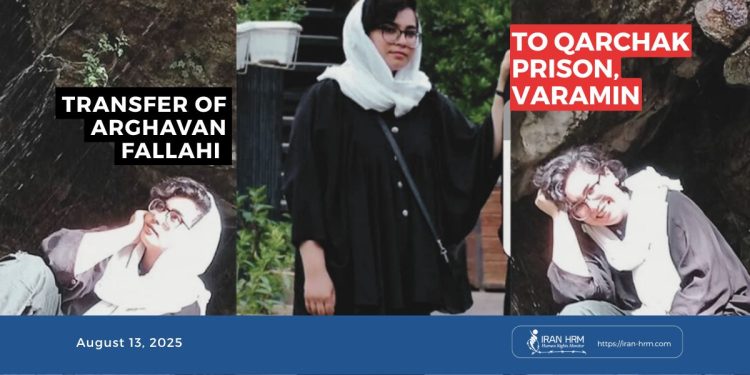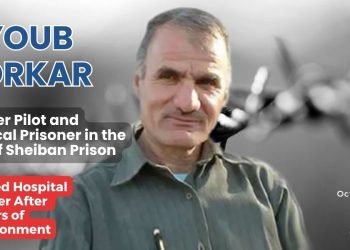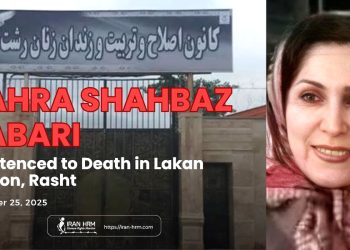According to reports, Arghavan Fallahi, 24, a political prisoner, has been transferred to the political prisoners’ ward in Qarchak Prison, Varamin, after spending two months in solitary confinement in Fashafouyeh Prison and a period of transfer to an unknown location.
This transfer comes after she had previously spent more than six months under interrogation and subjected to physical and psychological torture, while her family remained unaware of her condition and whereabouts throughout this time.
Arrest and Charges
Arghavan Fallahi was arrested on January 26, 2025, in Tehran. The charges against her are “propaganda activities against the regime” and “supporting an opposition organization.” Her arrest and interrogations were conducted directly under the supervision of the IRGC Intelligence Organization and the Judiciary’s Intelligence Organization.
In the first months, she was held in solitary confinement in Ward 241 of Evin Prison, under intense interrogation. According to informed sources, this prolonged solitary confinement was aimed at exerting psychological pressure and breaking her resistance.
Transfer to Fashafouyeh and an Unknown Location
After the initial interrogations ended, Fallahi was transferred to solitary confinement in Fashafouyeh Prison—a facility notorious for overcrowding, poor hygiene conditions, and systematic violence against inmates. After some time, she was moved to an undisclosed location, during which all contact with her family and lawyer was cut off.
Nasrollah Fallahi, the father of this political prisoner—who is himself also imprisoned—previously stated that bail had been set at two billion tomans for his daughter’s temporary release, but the judicial process has made her release practically impossible.
Qarchak Conditions; Change of Location but Continued Risk
After two months of no news, it was revealed that Arghavan Fallahi had been transferred to the women’s political prisoners’ ward in Qarchak Prison. While this transfer ended her period of solitary confinement, Qarchak Prison itself is considered one of the most notorious prisons in Iran.
Chronic issues in this prison include unsanitary conditions, overcrowding, lack of safe drinking water, poor-quality food, and restricted access to medical care. Reports indicate that even political prisoners are not granted the principle of “separation of crimes,” and in many cases, they are placed alongside inmates convicted of violent offenses, which poses serious risks to their safety.
Additional Deprivations and Health Concerns
Despite being moved to the women’s political prisoners’ ward, Arghavan Fallahi is still denied regular contact with her family and access to a lawyer. Her physical and mental health is described as concerning after months of interrogation and solitary confinement, and informed sources have reported the lasting effects of psychological torture and severe interrogation pressures on her.







